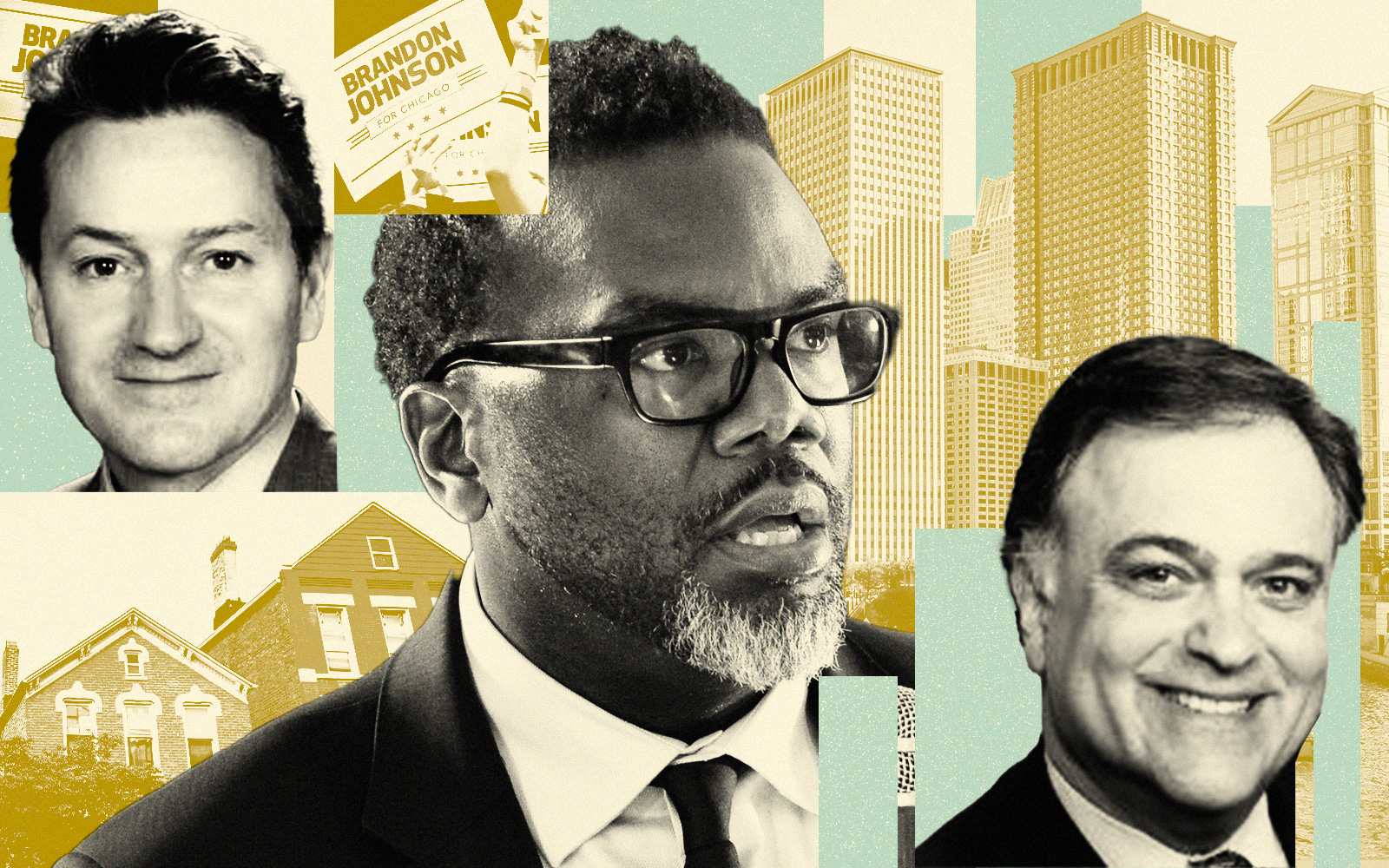Chicago’s commercial real estate advocates are ready to speak up against a proposed transfer tax hike today when a policy espoused by Mayor Brandon Johnson is taken up by a city council committee at 2 p.m.
The Committee on Housing and Real Estate is scheduled to discuss and hear testimony on the initiative dubbed Bring Chicago Home that would more than triple the city’s real estate transfer tax on all property sales priced at $1 million or more.
While Thursday’s meeting is framed as only a discussion of the transfer tax topic with no official legislation yet introduced to the full city council since Johnson took office this year, a past iteration of the proposal that previously stalled in the council would have more than tripled the real estate transfer tax on properties sold for $1 million or more to fund city programs for the homeless.
The new rate would have been 2.65 percent of the sale price for deals meeting the price threshold, up from 0.75 percent charged on all deals regardless of price. And it would come on top of transfer taxes already charged by the state and county governments, as well as a transfer tax dedicated specifically to the Chicago Transit Authority.
“We’re presuming or working off the version that was introduced previously,” Chicagoland Apartment Association’s Michael Mini said. “It remains to be seen whether the actual ordinance will be exactly like the previous versions that were introduced or there will be some changes.”
For their part, industry lobbyists haven’t revealed any types of changes that could water down the proposal to make it more tolerable for their clients, such as lowering the tax rate that would be charged or raising the threshold at which the extra tax would kick in somewhere above $1 million so fewer deals would be impacted.
Instead, they’ve focused on persuading policymakers that a tax similar to the Bring Chicago Home proposal would damage the city’s real estate market while it already faces significant challenges with record office and retail vacancies in the city’s business hubs.
Lobbying groups are also unsure of the potential path that proponents of any legislation arising from Thursday’s discussion would favor taking with the proposal. The previous version was framed as a ballot initiative that a majority of city council could have sent to voters to decide in a referendum before it stalled. After the progressive Johnson’s election this spring, his ideological allies on the council may see promise in trying a similar route.
A spokesperson for Chicago’s Coalition for the Homeless, a group in support of the proposal it says would raise an average of $163 million annually, didn’t respond to questions about any proposed changes to the measure.
Paul Colgan, a lobbyist for the Building Industry Association of Greater Chicago, said industry groups opposed to the measure are prepared to testify, though they still don’t have specifics on how the money would be used.
“When you’re asking for this kind of money you need to have a plan,” Colgan said. “There are businesses that are going to pay this, these are jobs impacted. It’s very concerning.”
Industry groups including Chicago’s chapter for the commercial landlord group Building Owners and Managers Association as well as Illinois Realtors and the Chicago Association of Realtors also plan to deliver testimony Thursday. The tax would create an additional burden for homeowners and downtown office landlords, the organizations said.
“We all want to help the unhoused and believe that when we work together, we can be more effective and make a bigger difference. When we focus on growing our tax base by supporting investments, we create more organic tax revenues and jobs that benefit all neighborhoods across Chicago,” Amy Masters of BOMA/Chicago said.
Read more



